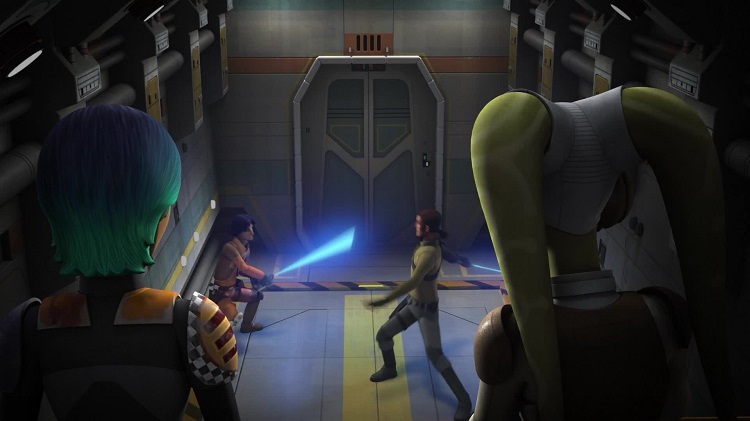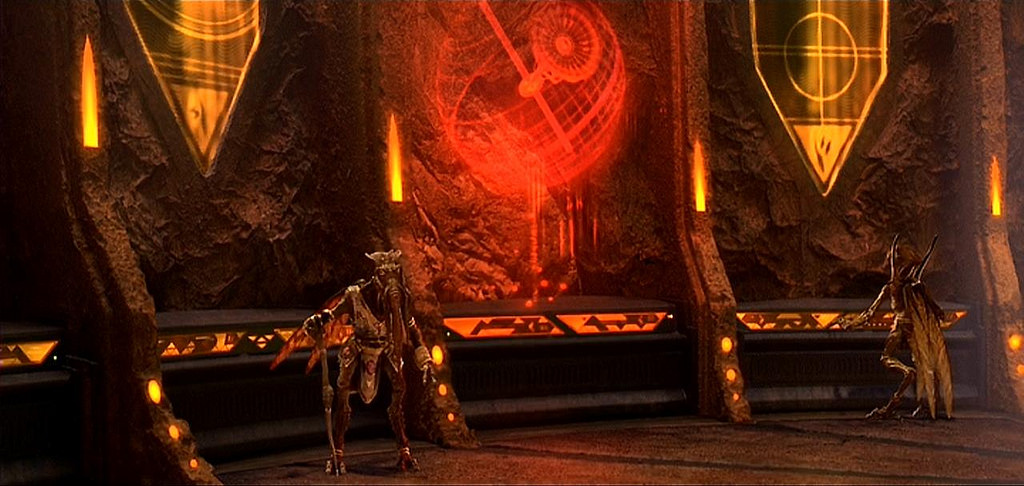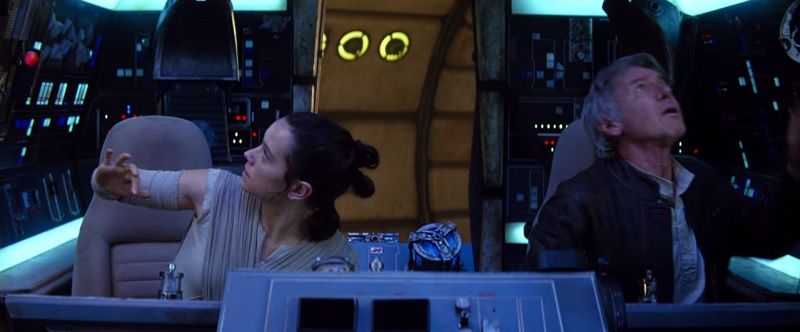
“When you’re directing a scene on the Millennium Falcon, it doesn’t make the scene good. Now it’s bitchin’ that it’s on the Millennium Falcon. You want a scene on the Millennium—if I could make a suggestion, direct scenes on the Millennium Falcon, cause it’s hugely helpful. But it doesn’t make the scene automatically good.”
–JJ Abrams at San Diego Comic-Con, July 2015
One of the major recurring topics of Star Wars fandom over the last few years has been the notion that this is, in some fundamental way, a movie franchise. At face value that may seem obvious, but there’s more to it than there might seem right away. For a lot of fans, especially nineties kids like myself, far more of our formative years was spent reading Star Wars books, comics, Essential Guides, and so on than watching the films. Even once the prequel trilogy was coming out, and causing occasional headaches for the Expanded Universe, there was always an understanding that the film aspect of the franchise was not just finite but distinctly limited—they were a storm we just had to weather before the EU took over again. Just like there was never going to be an Episode VII, nor would there be a III.V, or a Zero, or a Negative Twenty. The films were Anakin’s life story, and if that wasn’t the major draw for you, no big deal. If you liked harder military science fiction, Star Wars was a novel franchise about the continuing war with the Empire. If you liked Jedi melodrama, the comics of John Ostrander and Jan Duursema were your Star Wars. If you were a gamer, Star Wars was Dark Forces or X-Wing Alliance or The Force Unleashed.
And yeah, one of the coolest things about it was that all those different pocket universes intersected and fed off of each other—at least in theory—so even if you mostly kept in one or two lanes yourself you still got to feel like part of this grand tapestry of SW fandom. Things are different now, and frankly I don’t blame some people for still not being okay with that, but it is what it is. Movies are once again steering the ship, and will be for the foreseeable future no matter what part of the timeline you’re into; that doesn’t ruin Star Wars, in my opinion, but it does necessitate a degree of realignment. What role should supplemental material—which is what the books are now, supplements—play in a movies-first franchise? What role can they play best? Read More
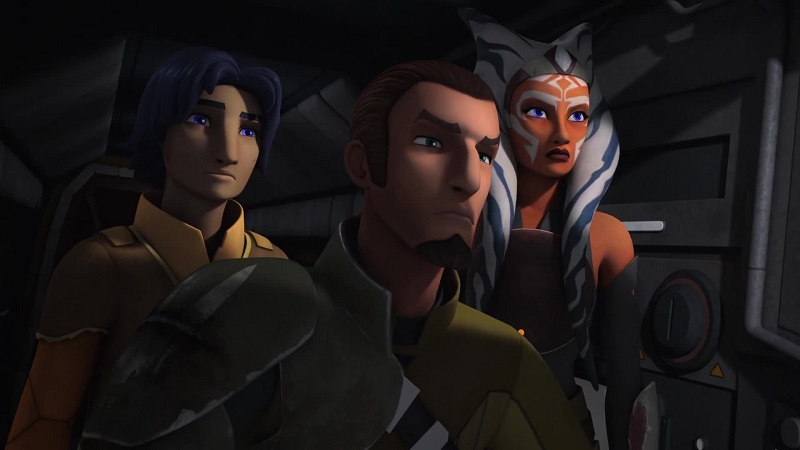
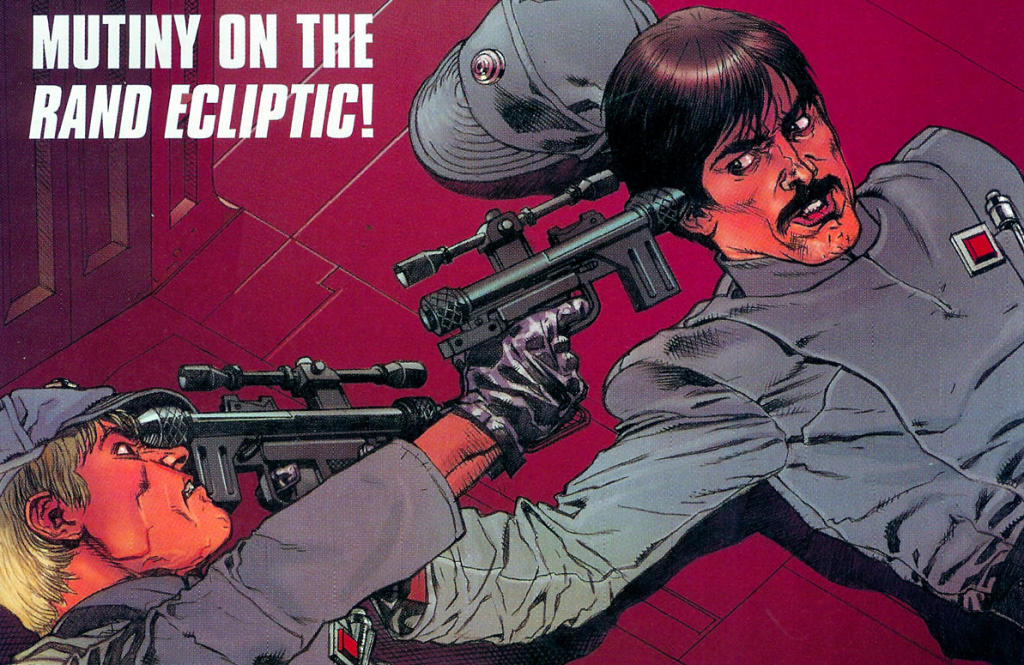 Moral relativity is hard to do in Star Wars, because it’s a tale of good versus evil. However, sophisticated storytelling expects that things are rarely black and white. Add in the influence of fans, and it’s not surprising that villains end up being quite popular in Star Wars. The Galactic Empire is probably one of the most popular villains in fiction, and so it’s easy to see why there’s an interest in presenting the Empire as a little more nuanced than purely evil. This always runs the risk of whitewashing Imperial atrocities, or presenting the “good Imperial” – the person who is certainly not a Rebel, but also not a bad person. We’re personally always suspect of the idea of the “good Imperial,” because while we very much enjoy reading about Imperials we also don’t want to sacrifice the theming of the Star Wars saga.
Moral relativity is hard to do in Star Wars, because it’s a tale of good versus evil. However, sophisticated storytelling expects that things are rarely black and white. Add in the influence of fans, and it’s not surprising that villains end up being quite popular in Star Wars. The Galactic Empire is probably one of the most popular villains in fiction, and so it’s easy to see why there’s an interest in presenting the Empire as a little more nuanced than purely evil. This always runs the risk of whitewashing Imperial atrocities, or presenting the “good Imperial” – the person who is certainly not a Rebel, but also not a bad person. We’re personally always suspect of the idea of the “good Imperial,” because while we very much enjoy reading about Imperials we also don’t want to sacrifice the theming of the Star Wars saga.
